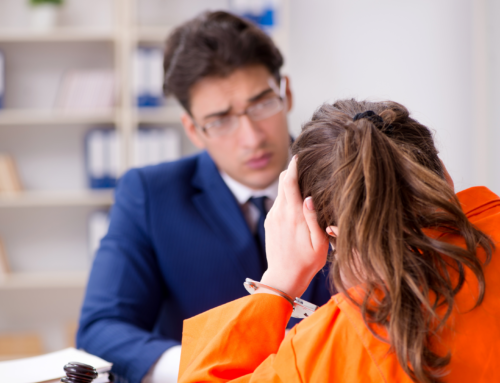What should you do? What shouldn’t you do? Here are a few pieces of advice to keep in mind when you cross paths with the police. Whether you’ve been arrested for a misdemeanor or felony, for retail theft, drug charges, weapons violations, battery or assault, this information will help you.
- How Did the Fish get Caught? He Opened his Mouth.
- Don’t try to convince the police you are innocent. The police are trained professionals. They are trained to get you talking so that you provide them with information without them having to search for it. The police don’t decide if you are guilty or innocent, the police only decide whether to arrest you and what to charge you with. Even if you feel there has been a mistake, what you say can oftentimes open the door to harming your case or giving the officer more information to charge you with other crimes. The only thing you should tell the officer is that you have a lawyer and want to speak with him.
- Don’t Run from the Police
- You will not escape the police. They have radios, backup and know the neighborhoods better than you do. Additionally, by fleeing the scene, you are opening yourself up to being charged with felony offenses, potentially injuring yourself of others, having the police draw their firearms on you, and angering the police.
- You have the Right to Remain Silent – Exercise Your Right
- Getting arrested is a stressful experience and many people talk a lot when they get stressed. Asking the police questions about your case will only provide the police insight into what you know about the crime. Even if you are innocent, you may give the police conflicting information that makes you look like you’re making up a story. For example, clients tell the police, “I left dinner at 8:30” and then after they are arrested tell the police, “Dinner ended at 9”. Sounds innocent enough right? Wrong, to the police and later in court, you have given conflicting times that affect your credibility and memory of what happened.
- Do Not Allow or Give Permission to the Police to Search Anywhere
- The police are going to do whatever they want but the key to whether their searches are legal or not is whether you have given consent and permission or not. If they are asking you for permission to search you, your car or your home it is likely that the police know they do not have the legal ability to search. Tell the police in a loud and clear voice “You do not have my permission or consent to search”. If they continue to search, what they find can be excluded from the case against you and could get the charges thrown out. Do not respond to the police search or give them hints as to where to search and do not answer questions from the police like “Whose is this?” or “Does this belong to you?”
- Do Not Fight the Police or Resist Arrest
- In Illinois, even if the police have wrongly arrested you, you cannot resist the arrest. You can still be charged with resisting arrest even if the original reason for the arrest is dismissed. Do not put your hands on the police, stiffen your arms to avoid being handcuffed or swipe the officer’s hands away from you. If the officer is hurt, a minor offense could turn into a felony offense.
- Do Not Verbally Abuse the Police
- No matter how terribly the police are treating you, avoid the urge to yell at them. If, in the heat of the moment you threaten the officer, you can be charged with aggravated assault or a felony offense. Additionally, as a former prosecutor, I would ask the police how they were treated during the arrest. If the officer told me the defendant was abusive and was disrespectful, it would influence how I prosecuted the case.
- The Police Will Lie to You
- As I mentioned above, the police are trained professionals when it comes to getting people to give up information. This includes lying to suspects to get them to talk. For instance the police may say, “If you tell me the truth, you won’t go to jail” or “Your friend told me you were the one who committed the crime”. The police are under no legal obligation to tell you the truth.
- Do Not Invite the Police Into Your Home
- In most cases, the police need a search or arrest warrant to enter your home. So if you do not invite the police into your home they cannot enter. If the police come to your door and ask to come inside to talk, simply step outside of your home and close the door behind you. A common tactic the police use is asking you if you’d like to go inside to change your clothes or get a jacket. The police will not let you do this alone and will escort you into your home. At this point the police will be looking around your house and may find incriminating evidence against you.
[standout-css3-button href=”/contacts”]Contact Our Office.[/standout-css3-button]






